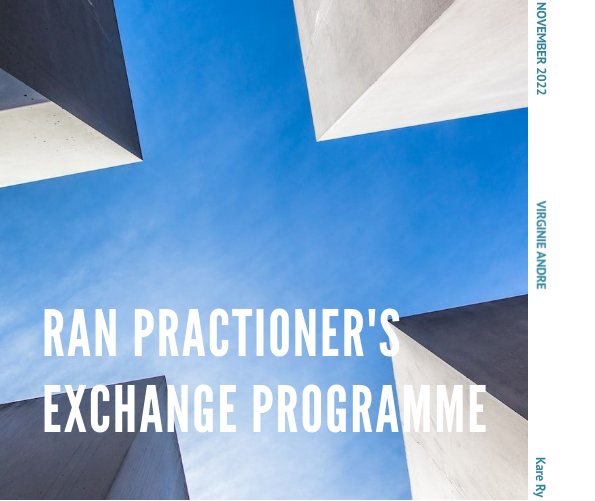Study Visit at EXIT-Germany
Report by Dr. Virginie Andre.
The RAN Practitioner Exchange Programme, which took place among others in Germany (EXIT-Germany) and Finland (Kare Ry & Exit Finland), was a resounding success in supporting and targeting practitioners at an individual professional level. This pioneering programme was a new deliverable for RAN and it provided practitioners with the unparalleled opportunity of a „shadowing“ and learning experience. The concept behind the programme is that visiting practitioners and hosting practitioners can learn from each other in a more intimate and personalized setting than traditional RAN working group meetings or training seminars.
„While context matters, knowledge and practices know no boundaries and we all deal with one common agency, that is the human factor.“
The RAN PEP was a chance for practitioners to gain new insights, knowledge, and skills in a different country and context. The exchange allowed practitioners to see how their counterparts work and to learn from their experiences. It was a chance for practitioners to step out of their comfort zones and gain new perspectives on the challenges they face in their daily work.
The exchange was extremely beneficial and very helpful, impressive, and meaningful. It was the opportunity to observe our counterparts working in real-life situations and to learn from them firsthand with chance to share own experiences and knowledge with our counterparts, which was mutually beneficial. The Practitioner Exchange Programme was a valuable addition to RAN’s efforts to support practitioners and improve skills and knowledge. It was a unique opportunity to learn from each other, share best practices, and gain new perspectives in the field of P/CVE. The following report is intended to give a small insight.
Summary
The practitioner exchange program was a 5-day program focusing on exchanging knowledge and participative experience in the context of exit work and deradicalization. The program provided new knowledge around approaches and methods of intervention, particularly in relation to the role historical narratives can play in disengagement and rehabilitation as well as the use of biographical work. Field trips to historical sites such as the Sachsenhausen concentration camp and the Jewish Museum of Berlin offered immersive experiences that helped participants better understand the power of Exit Deutschland’s practices. Key learnings included the importance of historical pedagogical approaches and the need to use them on a case-by-case basis to support the disengagement and rehabilitation process.


